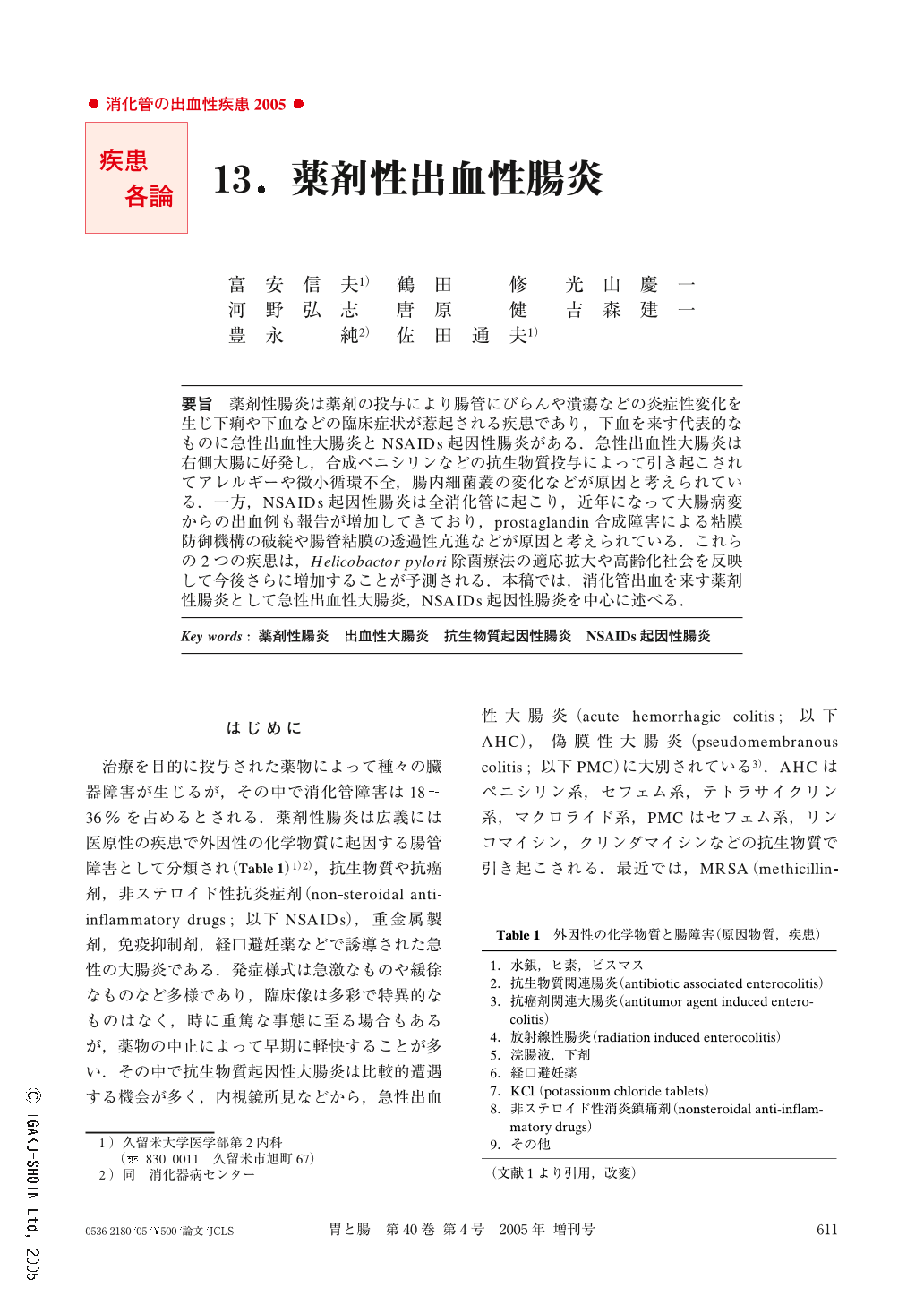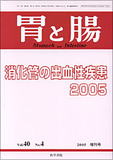Japanese
English
- 有料閲覧
- Abstract 文献概要
- 1ページ目 Look Inside
- 参考文献 Reference
- サイト内被引用 Cited by
要旨 薬剤性腸炎は薬剤の投与により腸管にびらんや潰瘍などの炎症性変化を生じ下痢や下血などの臨床症状が惹起される疾患であり,下血を来す代表的なものに急性出血性大腸炎とNSAIDs起因性腸炎がある.急性出血性大腸炎は右側大腸に好発し,合成ペニシリンなどの抗生物質投与によって引き起こされてアレルギーや微小循環不全,腸内細菌叢の変化などが原因と考えられている.一方,NSAIDs起因性腸炎は全消化管に起こり,近年になって大腸病変からの出血例も報告が増加してきており,prostaglandin合成障害による粘膜防御機構の破綻や腸管粘膜の透過性亢進などが原因と考えられている.これらの2つの疾患は,Helicobacto pylori除菌療法の適応拡大や高齢化社会を反映して今後さらに増加することが予測される.本稿では,消化管出血を来す薬剤性腸炎として急性出血性大腸炎,NSAIDs起因性腸炎を中心に述べる.
Drug-induced hemorrhagic enterocolitis is an erosive and ulcerative intestinal inflammation caused by drugs such as antibiotics or nonsteroidal anti-inflammatory drug (NSAID), and manifests as diarrhea and hematochezia. This disease includes acute hemorrhagic colitis and NSAIDs-induced enterocolitis. Acute hemorrhagic colitis is often seen in the proximal colon after the administration of antibiotics, which may be caused by allergic reaction, insufficient microcirculation and the alteration of microflora. NSAIDs-induced enterocolitis is observed in the whole intestine. The cause of the disease is probably based on NSAIDs-induced prostaglandin inhibition, which subsequently causes mucosal damage and enhances intestinal permeability. Because of the increasing use of such causative drugs, these two diseases will probably become more frequent in the future.

Copyright © 2005, Igaku-Shoin Ltd. All rights reserved.


